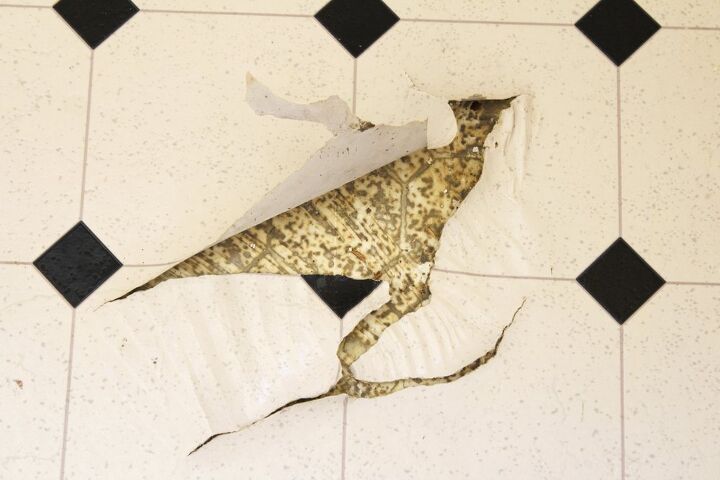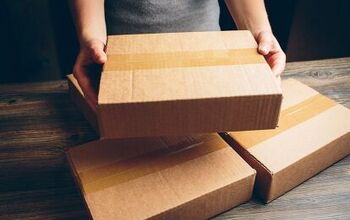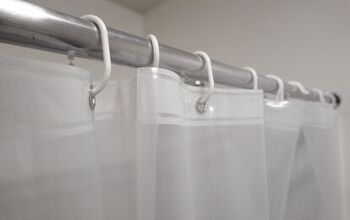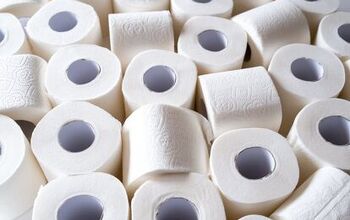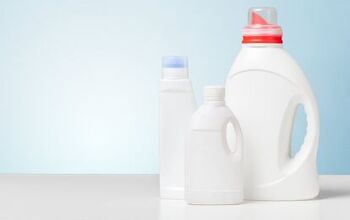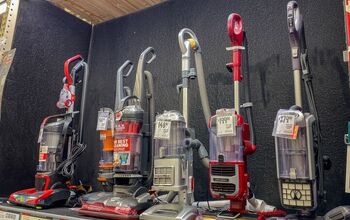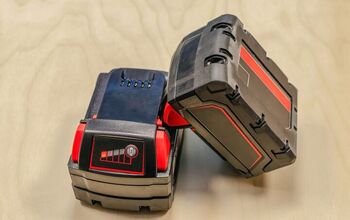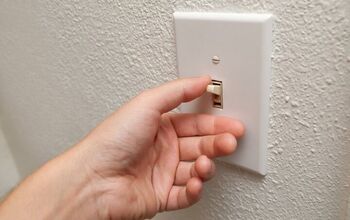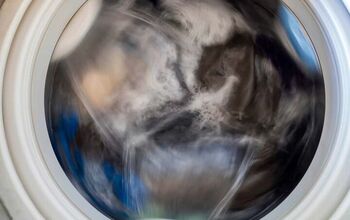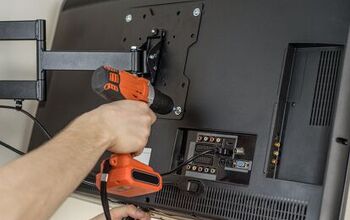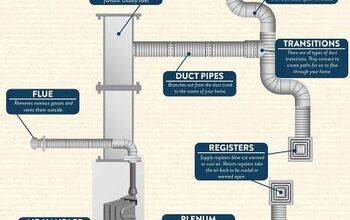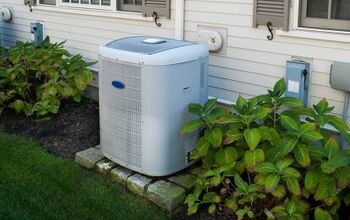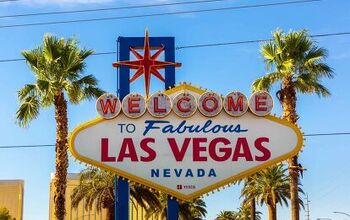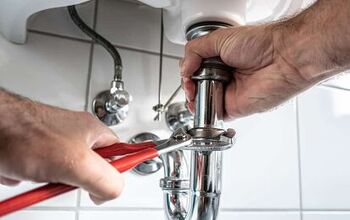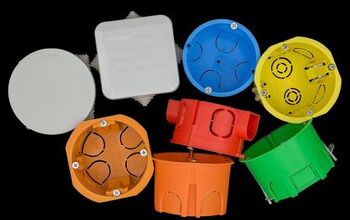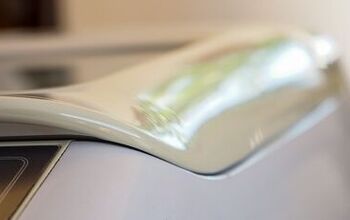Can You Recycle Vinyl? (Yes, Here's How!)

You might be wondering about the environmental impact of vinyl products in the home. Many of us are concerned about the environment and minimizing our negative impact. Naturally, more homeowners and renovators seek ways to reduce, reuse, and recycle whatever they can.
Today’s homes are more likely to have vinyl products, also known as PVC. You’ll find it in exterior siding, deck boards, or interior flooring. After construction or renovation, many PVC products end up in local landfills, but do they have to?
Vinyl products can be recycled, but not as part of a conventional recycling effort. PVC material can only be recycled with other PVC material to create more of the same. For that reason, you have to find a recycler that will accept and process PVC. Clean and separate your vinyl recyclables from all other materials.
Vinyl Products In Our Homes
Once you start looking around, you’ll see vinyl is a common product in constructing all kinds of real estate, including homes. Vinyl exterior siding is probably the most obvious. Homeowners choose it because of its affordability, energy efficiency, and durability against various weather conditions.
Vinyl flooring has also increased in popularity because of its durability, low cost, and waterproof properties. Vinyl can be made to mimic all kinds of other floors, such as tile or wood planking, but with a lower price and easier installation.
The internal structure of homes can include PVC products, such as in the plumbing and gutters. PVC has more applications in windows, blinds, exterior decks, and pool liners.
Why Builders Use Vinyl
Vinyl is used in many industries because of its low manufacturing cost, versatile applications, and enduring performance. Chemically known as polyvinyl chloride, or #3 plastic, it’s manufactured for use in everything from healthcare to construction.
North America produces over 14 billion pounds of vinyl materials each year, and approximately 70% of that is for the building industry.
How Vinyl Is Made
PVC is manufactured from two compounds. The vinyl is approximately 43% ethylene and 57% chlorine. This produces ethylene dichloride.
Unlike the chlorine found in a pool, the chlorine in vinyl holds a rigid structure. The conversion happens during the manufacturing process and makes PVC resistant to water and environmental decay.
Does Vinyl Decompose?
Vinyl is non-biodegradable, meaning it will not decompose over time. Once a PVC product arrives in the landfill, it will stay as a vinyl product and take up space.
On the upside, vinyl does not contaminate the environment because of its non-corroding properties.
What to Know About Recycling Vinyl
Vinyl is a recyclable product, but you can’t just put it in the recycling bin or drop it off at a typical municipal recycling plant. Vinyl is a difficult plastic to recycle because of how it is made.
Including PVC products with other recyclable plastics will contaminate those plastics. Exposing vinyl products to very high heat releases the locked chlorine, which converts to toxic chlorine gas. PVC recycling has to be treated with care.
For that reason, PVC can only be recycled into more PVC. When you drop off materials at a vinyl recycler, the PVC is ground into pellets that can be used to create other PVC products. The Vinyl Institute found that PVC can be recycled up to eight times.
The Vinyl Institute estimates 50 to 100 million pounds of vinyl is recycled each year. This number represents about 10% or less of the total amount of recycled plastic and is just one-third of 1% of the annual amount of manufactured PVC used in building materials each year.
Steps To Recycling PVC
1. Find a Recycler
You can’t leave PVC products by the side of the road or put them in your street recycling bin. All PVC must go to a certified recycler in PVC.
Contact your local recycling centers to see if they accept vinyl siding or other vinyl products. You can also go to the Vinyl Institute website, which has a searchable index of recyclers that accept PVC.
2. Gather Your Vinyl
Gather and bundle all PVC products you plan to recycle into a separate storage container or bin. Do not mix them with other plastics or materials. In addition, make sure that the vinyl products are clean. Wash off as much dirt or construction debris as you can.
3. Deliver to a Recycling Center
Transport your bundles of PVC products to the recycling center. Feel confident that your unused or old vinyl products will re-enter the system, reducing the environmental impact of PVC manufacturing and use.
4. Processing PVC
The recycler will clean off the scrap vinyl again to reduce any contamination in the recycling process. The final products will be ground down into fine granules. These will eventually be sold to manufacturers or brokers who meltdown the pellets to create new vinyl products.
Related Questions
Is vinyl harmful to the environment?
Remember that PVC is 57% chlorine, a dioxin that can contaminate the environment. This is most likely to happen during the manufacturing process, which requires additional toxic additives like lead. A release can also happen if the vinyl product catches fire, as the chlorine will become a harmful gas.
Can I recycle vinyl flooring?
Like other PVC products, vinyl flooring is recyclable as long as it is with other PVC products. Make sure any recyclable flooring is separated from other plastics and recyclables. The vinyl flooring must also be clean and free of any adhesives used to bond it to the subfloor.
The Final Word On Vinyl Recycling
For a more sustainable built environment, let’s be aware of how the products used in home construction and renovation impact the environment. Vinyl has its advantages in that it is recyclable and can be used multiple times. Recycling vinyl also keeps it out of the landfill.
While you can’t recycle PVC the same way as aluminum, it can be done. All you need to do is find a recycler that accepts PVC material. In doing so, you minimize the environmental impact of vinyl manufacturing and keep it out of landfills.

We are a team of passionate homeowners, home improvement pros, and DIY enthusiasts who enjoy sharing home improvement, housekeeping, decorating, and more with other homeowners! Whether you're looking for a step-by-step guide on fixing an appliance or the cost of installing a fence, we've here to help.
More by Upgraded Home Team



